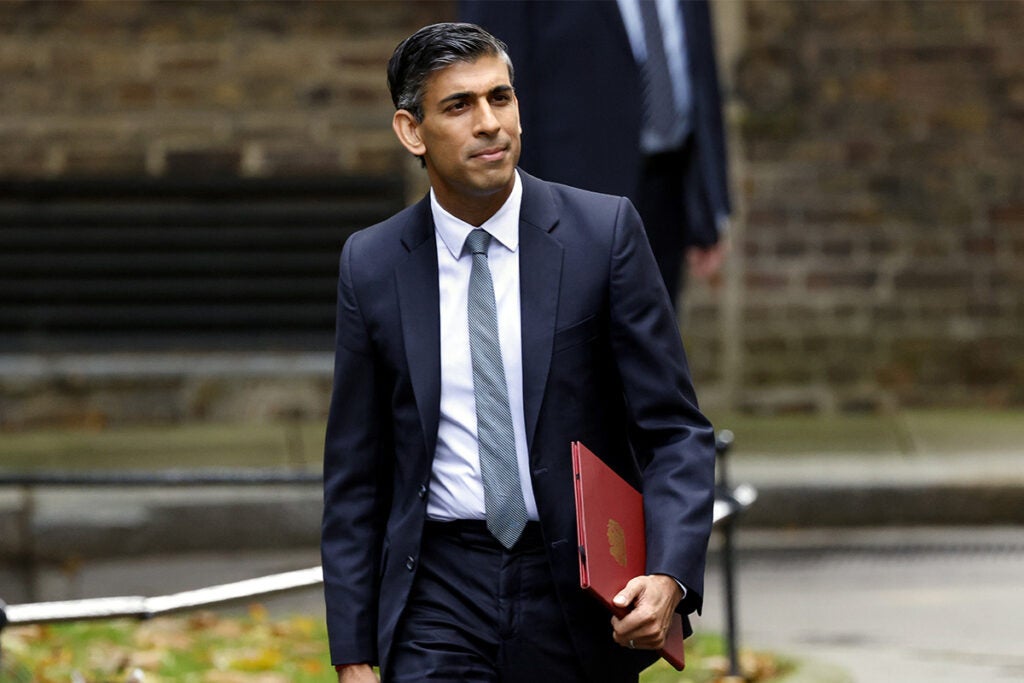
If the British tax landscape in 2023 was defined by pre-election uncertainty, then 2024 will be a year shaped by the results. Rishi Sunak indicated today that the general election won’t be held until ‘the second half of the year’. Yet for tax advisers and their UHNW clients, fiscal planning for both outcomes is already in motion.
[See also: The best accountants and tax advisers for high-net-worth individuals in the UK in 2023]
Tax advisers are urging pre-emptive action, with the future of the non-dom regime and inheritance tax (IHT) both clouded by uncertainty. ‘Fire escape plans’ are being drafted, alternative jurisdictions considered, and tax relief schemes discussed.
As the date of the election becomes clearer – and manifestoes are finalised – these two divisive tax battlegrounds will come more firmly into focus. It’s the job of tax advisers to ensure their clients are ready for what’s to come.
‘This is an election year so all tax advisers, me included, are getting very excited‘
James Quarmby, partner at Stephenson Harwood
Labour, remittance basis and the non-dom regime

Labour has promised to replace the existing non-dom regime should it take the reins on tax policy in 2024, sparking fear among the 54,000 UK residents who currently take advantage of the scheme. The Wealth Tax Commission has calculated that abolishing the scheme could bring in an extra £3.6 billion to the Treasury.
Advisers started planning for this eventuality months ago, explains lawyer David Lesperance, who specialises in matters of taxation and citizenship.
[See also: The UHNW non-doms leaving the UK to escape a Labour government]
Some internationally mobile HNWs, many of whom have come to the UK to take advantage of its attractive non-dom regime, are now considering their options, including leaving the country altogether, and have drawn up ‘fire escape plans’ to enact should the worst-case scenario emerge.
A recent report from Withers suggests that it is the time to reform, rather than abolish, the non-dom regime.
James Quarmby, head of private wealth at Stephenson Harwood and winner of the Lawyer of the Year (Tax and Trusts) at the Spear’s Awards 2022, said he believes Labour will take a reformative approach. ‘My own view is that it will look a little like the Spanish regime; otherwise known as the Beckham Law,’ he tells Spear’s. ‘In essence, this means that new immigrants will get, say, five years after arrival during which time there is no tax on foreign profits, even if remitted to the UK. After that time, it’s worldwide tax.’
[See also: Is this how to save the non-dom regime?]
Lesperance says he would like to see reform ‘limiting the remittance basis’ but anticipates Labour will take a more aggressive approach and eliminate it entirely.
But he warns: ‘It is worth remembering that a loss of the remittance basis means that not only are income and capital gains taxes going to go from UK source or remittance, but even more significantly UK inheritance tax exposure will expand from UK based to all global assets.’
Preparing for a post-election exodus
Such a drastic change would spark something of an exodus. The Withers report noted that, while the departure of non-doms might not be immediate, it could eventually reach the point where there was a net outflow of UHNWs.
‘When comparing his future tax burden under a Labour government compared to that of other jurisdictions, one of my clients put it bluntly, "London is nice....but it isn't that nice!"'
David Lesperance, lawyer and tax adviser
‘UHNW non-doms have been preparing for their departure from the UK over the last two years,’ says Lesperance. ‘Many non-doms who do not want to return to their home countries such as Russia, Ukraine, Saudi Arabia, China or India are obtaining residence rights in other countries which will allow them to maintain their quality of life while limiting or eliminating their tax burden.’
He continues: ‘Alternatives include tax-free destinations such as Monaco or the UAE; fixed-tax jurisdictions such as Italy, Switzerland or Greece; remittance jurisdictions such as Ireland or Malta; or those which allow them to limit or control their tax liability through planning including the US, Canada, Australia or Singapore.’
Inheritance tax: the Conservatives' great hope

Inheritance tax (IHT) was notably absent from Jeremy Hunt’s autumn statement, prompting widespread anticipation that the issue could form part of a ‘blockbuster budget’ on 6 March 2024.
‘The government needs to do something exciting for its base and we all know that IHT would be a vote winner for the middle classes and especially elderly middle classes,’ explains Quarmby. ‘But it will also be highly controversial with everyone else.’ Although only some 4 per cent of estates pay inheritance tax, around 30 per cent of people believe they will be subject to IHT by the time of their death.
Quarmby continues: ‘My view is that the chancellor will announce a phasing out of IHT, starting with an immediate reduction in the death rate of 40 per cent, perhaps to 30 per cent in 2024/25, reducing by 10 per cent a year until it is down to zero.’
Naturally, a total abolition of IHT will only make the UK more attractive to UHNWs. Eliana Sydes, Head of Financial Life Strategy at Y TREE, notes there may be secondary benefits in terms of wealth transfer. ‘UHNWs will make decisions based on what they actually want to do, rather than making decisions in order to reduce their estate later on,’ she explains.
Sydes also notes that UHNWs not subject to IHT restrictions will be more likely to hold onto their money and will continue to pay other taxes on these sums.
What will fill the IHT hole?
What Sir Keir Starmer intends to do about the question of inheritance tax remains to be seen. ‘I don’t think Labour has a clue what it will do about the IHT problem,’ says Quarmby. ‘Notably at what point do new immigrants get exposed to the full rate of IHT on all their assets? I think even Labour recognises that imposing 40 per cent on the value of all foreign assets after only a relatively short period in the UK would not be fair and, crucially, would prevent people from coming to the UK. Bear in mind that non-doms presently bring in more tax (around £9 billion per annum) than the entire IHT budget of around £8 billion, so this needs to be finely balanced.’
Lesperance predicts a tightening of inheritance tax as an alternate revenue source to compensate for the hole left by departing non-doms. However, this could in turn lead to UK-domiciled UHNWs to look abroad for a more favourable jurisdiction.
‘Just as with non-doms looking for new tax residences, the options available for a new domicile of origin are plentiful,’ he continues. ‘As this logical progression has dawned on my UHNW UK domiciled clients, I have seen a surge in their interest in acquiring new domiciles.’







